April 19, 2024 | 15:38 GMT +7
April 19, 2024 | 15:38 GMT +7
Hotline: 0913.378.918
April 19, 2024 | 15:38 GMT +7
Hotline: 0913.378.918
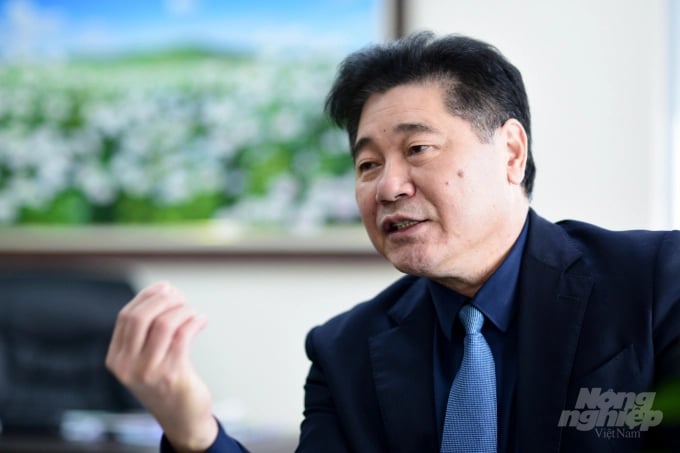
Le Quoc Thanh, director of the National Agricultural Extension Centre. Photo: Tung Dinh.
Le Quoc Thanh, director of the National Agricultural Extension Centre (NAEC) talks to Vietnam Agriculture Newspaper on orientations to make agricultural extension relevant in the coming period
Thanh said that the agricultural extension is in a flourished stage.
First, it is an integrated system. Thanks to the close connection between the NAEC and local agricultural extension centres, many provinces have approved long-term agricultural extension programmes with investment from the local budget.
Secondly, in the past, agricultural extension activities mainly followed a set plan, but now it is closely linked with production, and coordinated smoothly with units of the Ministry of Agriculture and Rural Development (MARD).
Under the direction of the MARD, solutions of research units have become essential to farmers.
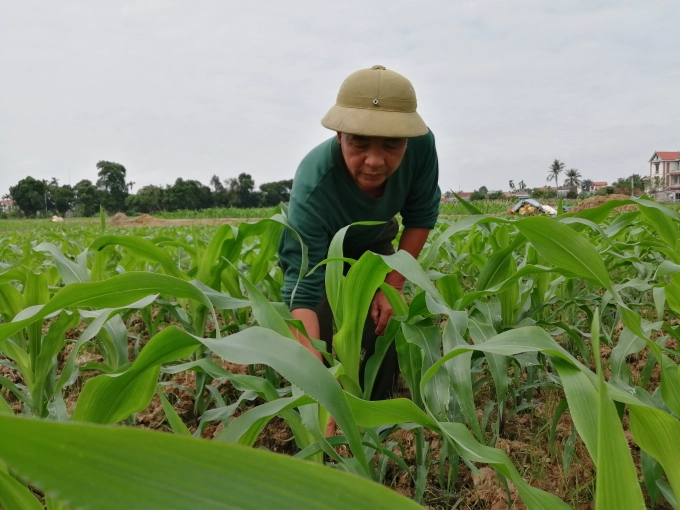
The agricultural extension has contributed to the revival of biomass maize production in the 2020-2021 winter season. Photo: Trung Quan.
Thanh takes the drought and saline intrusion in the Mekong Delta as an example.
“In response to drought and saline intrusion, the agricultural extension should bring into full play its role by instructing farmers in the Mekong Delta to restructure crops as well as how to retain water,” he said.
Responding to floods in the central region, there were technical packages which enabled farmers to undergo training courses on the spot.
“It’s time for us to be proactive in the management. In the past, we did in accordance with the set plan. However, things don't usually happen as planned, especially in agriculture, where there are many influencing factors including the weather. This requires us to be more proactive and associate with production,” Thanh said.
He said disseminating information was one of the important tasks of agricultural extension. In the past, it used to merely provide useful information to farmers but now it should enable them to create production orientation.
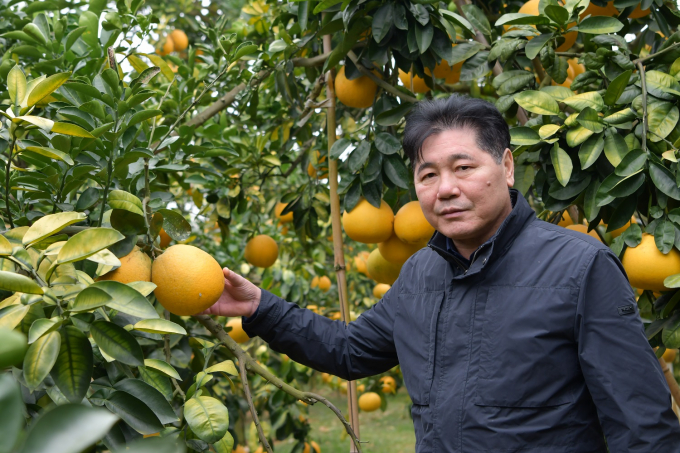
Le Quoc Thanh visits an organic grapefruit farming model in Bac Giang Province’s Luc Ngan District. Photo: Le Ben.
Agricultural extension will accompany the farmers, helping them figure out how to sell their agricultural products.
The value of a product depends on the quality of input, Thanh said.
If you want to sell the products to any market, you have to follow the standards of that market. Thus, farmers must accept production based on certain conditions and agricultural extension will play a supporting role when participating in the commodity market.
He said information technology should be widely applied in dissemination campaigns.
Instead of giving instructions as before, video clips will be created, making it easier for farmers to access the information.
Thanh said the agricultural extension activities should be renovated to adapt to new situations.
“It is no longer a personal issue but a requirement of the whole system, to catch up with each period of history, with the trend of the times ", he emphasised.
Regarding agricultural models, Thanh said that agricultural models should be outstanding ones and associate with a specific environment.
The current goal of agricultural extension is considering added value as the focal point, all national extension activities must be in line with that direction.
“Public-Private Partnership (PPP) in agricultural extension is an evitable trend,” the director of National Agricultural Extension Centre said.
According to him, the initiation of public-private partnership in the agricultural extension system has brought about remarkable results.
The NAEC has issued a number of principles in public-private partnership in the agricultural extension system which serves as a basis for clearly defining the responsibilities of partners and enterprises, he said, adding that farmers will benefit from the cooperation.
However, the country’s agricultural extension system is operating at less than half of its capacity. A lack of resources was the main reason. Therefore, Thanh said, it is necessary to mobilise external resources from businesses, international funds and political and social organisations.
The advantage of PPP is to increase resources from external factors for the agricultural extension system as well as make use of its capacity. This creates a motivation for production.
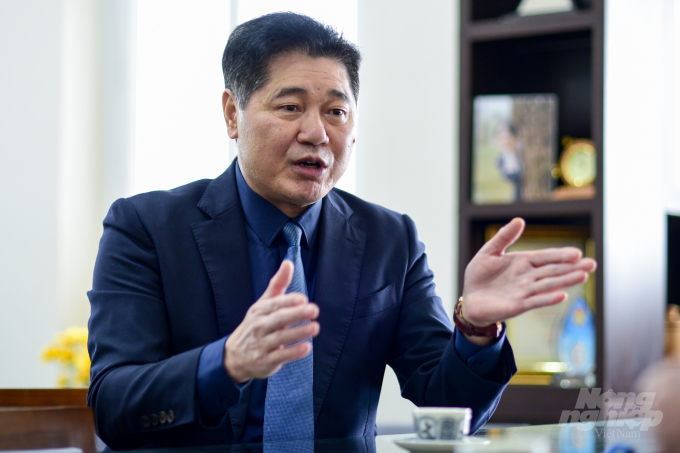
Le Quoc Thanh, director of the National Agricultural Extension Centre, talks to VAN on the advantage of public-private partnership. Photo: Tung Dinh.
To promote the strength of this form of cooperation, it is essential for agricultural extension to renovate and enhance capacity building to be suitable with partners.
"Agricultural extension is an integrated system, but that system must meet certain standards and be relevant to businesses to ensure effective cooperation," Thanh said.
Translated by Mai Huong
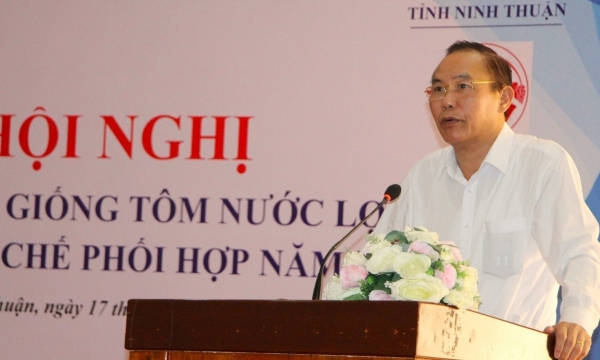
(VAN) In 2023, there were 2,270 shrimp seed production and incubation facilities around the country, producing 153 billion seeds and meeting the public's need for aquaculture.
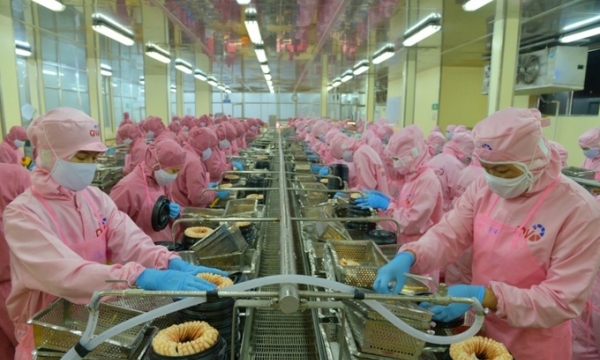
(VAN) VASEP has issued a letter reporting the situation of seafood production and export in the first quarter; the obstacles and shortcomings are significantly affecting the business operations of seafood enterprises.
/2024/04/12/5336-1-114650_902.jpg)
(VAN) The Secretariat requests Party committees, Party organizations, governments, the Vietnam Fatherland Front, and socio-political organizations to identify the fight against IUU fishing as an important task.
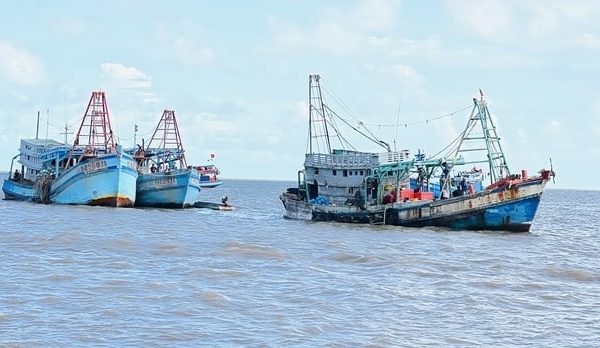
(VAN) MARD organized a conference on April 11 to address the implementation of new regulations in the revised Decrees No. 26 and No. 42 of the Government, as well as Circular 23 of MARD.
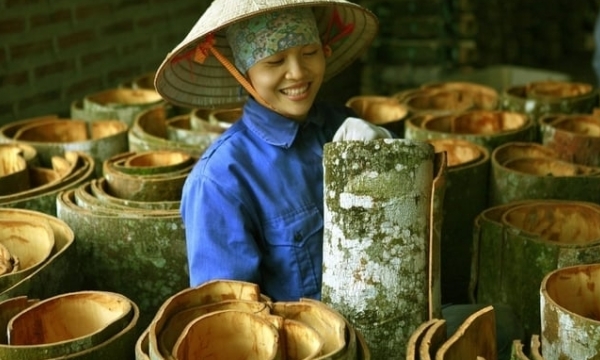
(VAN) Prime Minister Pham Minh Chinh signs Directive 35/CD-TTg on 10/4/2024 on medicinal materials exports, sending it to the Ministers of Health and Finance.
/2024/04/11/4403-2-233900_602.jpg)
(VAN) Livestock enterprises assume that greenhouse gas inventory is a new issue, with costs that are still high and regulations that are not detailed, so they need the companionship of state management.
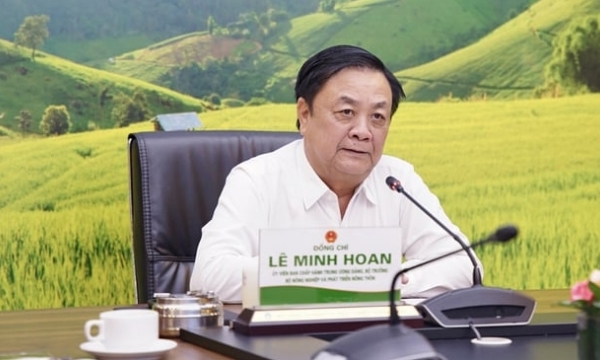
(VAN) The first meeting of the Steering Committee for product quality, food safety, and market development was convened by MARD on April 11.